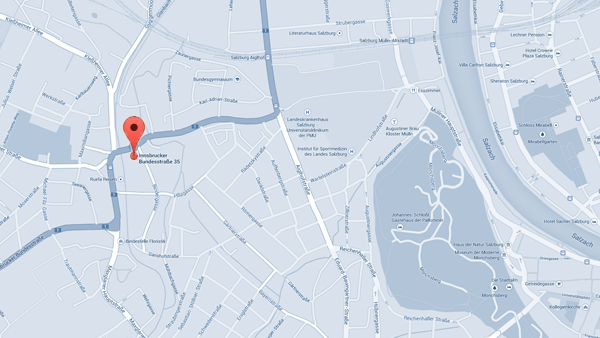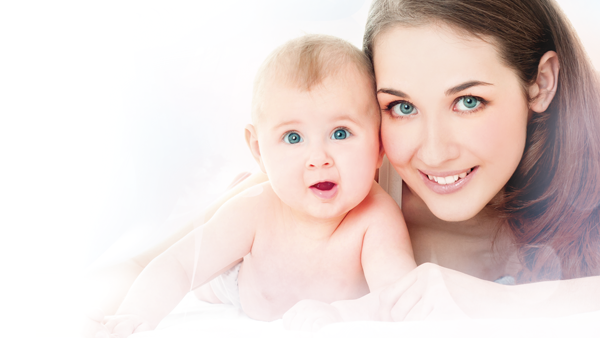Fertility Treatment using Egg Donation in Austria
What egg donors and recipients need to know:
- An egg donor must have completed the age of 18.
- The age limit fixed by law for egg donors is 30 years, for egg recipients it is 45 years.
- The egg donor may donate his oocytes only via ONE medical clinic.
- Per donor, oocytes may be provided for a maximum of three successful treatments with the birth of (a) child/children
- The identification/allocation of a suitable donor is made by the IVF center.
- There is anonymity between donor and recipient. Both the donor and the couple undergoing egg donation do not have access to the respective data.
- At the completed 14th year of age, the child resulting from the donated eggs is entitled to obtain information about the egg donor. The fertility center where the treatment was performed is obliged to disclose the relevant information upon inquiry by the child.
→ see also: "Changes in the Law on Reproductive Medicin - New Treatment Options in Austria"
Sequence of fertility treatment using egg donation at the IVF Centers Prof. Zech Bregenz and Salzburg
Each treatment at the IVF Centers Prof. Zech is based not only on compliance with legal regulations and ethical as well as medical principles, but is also focused on patient well-being and the health of all persons involved.
The chances of achieving pregnancy using donated eggs are very good, provided that the treatment complies with the highest medical standards and is performed by an experienced team of professionals. This includes the use of modern laboratory techniques, such as e.g.:
- IMSI - "Intra-cytoplasmic Morphologically Selected Sperm Injection "
- selection of embryos at the blastocyst stage
- genetic analyses (such as preimplantation genetic diagnosis)
- safe freezing technique/vitrification (e.g. in a cryo-cycle)
Such techniques in conjunction with optimized culture and embryo transfer techniques provide a sound basis for helping make the dream of couples dealing with undesired childlessness come true.
The Procedure for the Egg DONOR
1. Initial consultation
Analysis and discussion of the results of the potential egg donor with the treating doctor, detailed gynecological examination and ultrasound scan, discussion of legal provisions, risks, duration and sequence of treatment.
At the IVF Centers Prof. Zech-Bregenz and Salzburg, the following requirements must be met by the egg donor:
- Age limit: 30 years
- Evaluation of the donor's general health and suitability for donation by clinicians and geneticists, including gynecological examination and hormone analysis.
- Serological tests (Anti-HIV-1,2, HBs-AG, Anti-HBc, Anti-HCV-Ab, Lues, Rubella, Chlamydia)
- Karyotype (chromosomes)
- Exclusion of cystic fibrosis (mucoviscidosis)
Physical characteristics such as skin, hair and eye color, but also height and weight, blood group and Rhesus factor are documented and are considered when choosing a suitable donor. Then, the personal and family situation is obtained by means of a questionnaire to get an overall picture of the donor.
All these values are evaluated and assessed by medical specialists, who then take the decision as to whether the donor is suitable. If this is the case, the treatment starts with hormonal stimulation.
2. Hormonal stimulation (ovarian stimulation)
Hormone injections are administered to the donor to induce the growth of multiple follicles (containing the oocytes) in her ovary. The stimulation of the egg donor is carried out very gently and with the utmost care. Follicle growth is closely monitored by regular ultrasound scans and blood tests. Thus, it is guaranteed that there are no risks of hyperstimulation for the donor, going beyond the normal risks associated with ovarian stimulation.
3. Oocyte retrieval (follicular puncture)
Today, the aspiration of the oocytes / follicles is almost entirely performed through the vagina with the help of cutting-edge ultrasound technology. A transvaginal probe is used to visualize the follicles. Along a superimposed guiding line, the aspiration needle is inserted through the vagina straight into the follicle to aspirate the follicular fluid and the oocyte. The woman undergoes this procedure in a sleep-like state (sedoanalgesia).
The Procedure for the Egg RECIPIENT
1. Initial consultation
Analysis and discussion of the results of the couple and the egg donor with the treating doctor, detailed gynecological examination and ultrasound scan, discussion of legal provisions, risks, costs, duration and sequence of treatment.
2. Allocation of potential donors
The identification/allocation of a suitable donor is done on the basis of phenotypic characteristics (height, body weight, hair color, eye color, blood group etc.). Following appropriate medical clarification, the egg donor can just as well be a friend or relative of the egg recipient. (see Requirements to be met by an egg donor)
3. Build-up of the egg recipient's uterine lining by administering appropriate medication
Depending on the recipient's individual situation, her endometrium will be built-up by administering a combination of estrogen and progesterone.
4. Collection of sperm from the egg recipient's male partner
Semen specimens are usually collected by masturbation (under hygienic conditions, either at the IVF center where we provide appropriate facilities or at home - no more than two hours may elapse between ejaculation and handing-over of the sample at the IVF center.
5. Fertilization of the donor eggs (ICSI/IMSI)
Following a thorough analysis of the spermatozoa by means of the IMSI technique, the best sperm are selected and subsequently a single spermatozoon is injected directly into the cytoplasm of an egg cell using a very fine needle. Then the embryos are "cultivated" inside an incubator for five days until they have reached the so-called blastocyst stage. Those blastocysts that show a high implantation potential are selected for embryo transfer (blastocyst selection).
6. Ultrasound examination
The preparation of the uterine lining for embryo transfer is closely monitored by ultrasound scans in order to determine the most favorable moment for an implantation.
7. Embryo Transfer
A thin and flexible catheter is carefully guided through the vagina and cervix and the embryo(s) (transfer of a maximum of two embryos) is/are deposited into the uterus. This is done of the fifth day of embryonic development.
Synchronization Egg Donor/Recipient
To enable optimum synchronization between the egg donor's stimulation phase with subsequent follicular puncture and the preparation of the egg recipient for the embryo transfer, an individually tailored approach is required. The corresponding treatment (fresh cycle / cryo cycle) is geared to suit the particular situation of the couple.
Fresh Cycle
Following oocyte retrieval, the eggs of the donor and the sperm of the egg recipient's partner are brought together (IVF - In Vitro Fertilization). After fertilization, the embryos are placed in a special culture medium and are then incubated for five days until they have developed to the so-called blastocyst stage. The embryos are then replaced into the uterus (embryo transfer of a maximum of 2 embryos), which corresponds to the moment in natural reproduction when an embryo reaches the uterus after its journey through the fallopian tubes and starts to implant into the uterine lining.
Cryo Cycle
This approach is used, inter alia, if the build-up of the egg recipient's endometrium takes longer than the period of time it takes the embryos to reach the blastocyst stage, i.e. the embryos cannot be kept in culture beyond that stage. The day 5 embryos are frozen to be thawed for embryo transfer later on (a maximum of 2 embryos), when the optimum build-up of the endometrium has been achieved. According to the present state-of-the-art in medicine, the primary freezing and thawing of gametes (semen, oocytes, embryos) using cutting-edge technology (e.g. vitrification) has no impact on embryonic development and subsequent pregnancy.
We can help you!
A pleasant atmosphere, empathy, medical knowledge and expertise are especially important when it comes to fulfilling your desire to have children. We hope that our "striving for excellence" will also gain your trust, and we are looking forward to welcome you in Salzburg.



